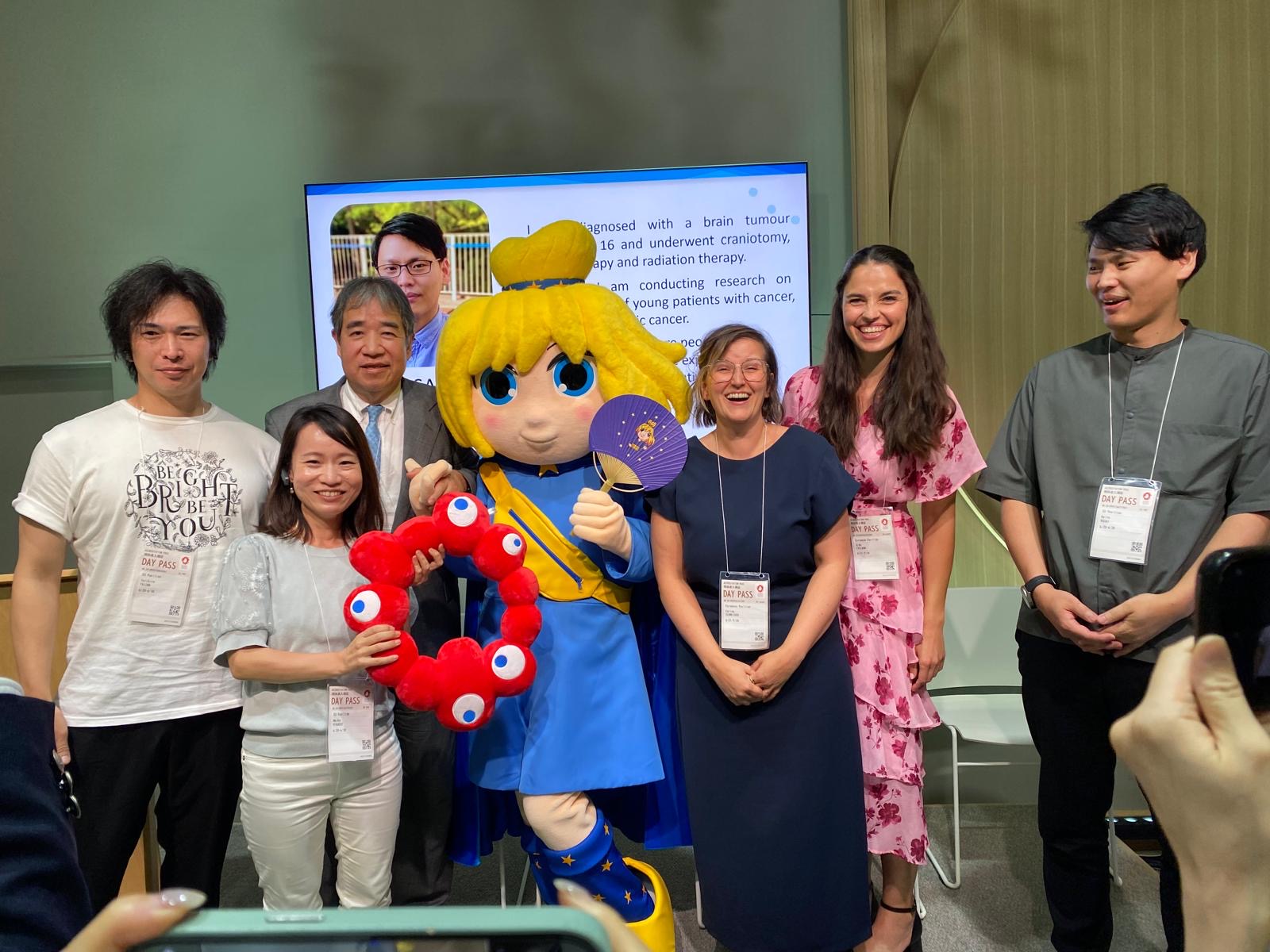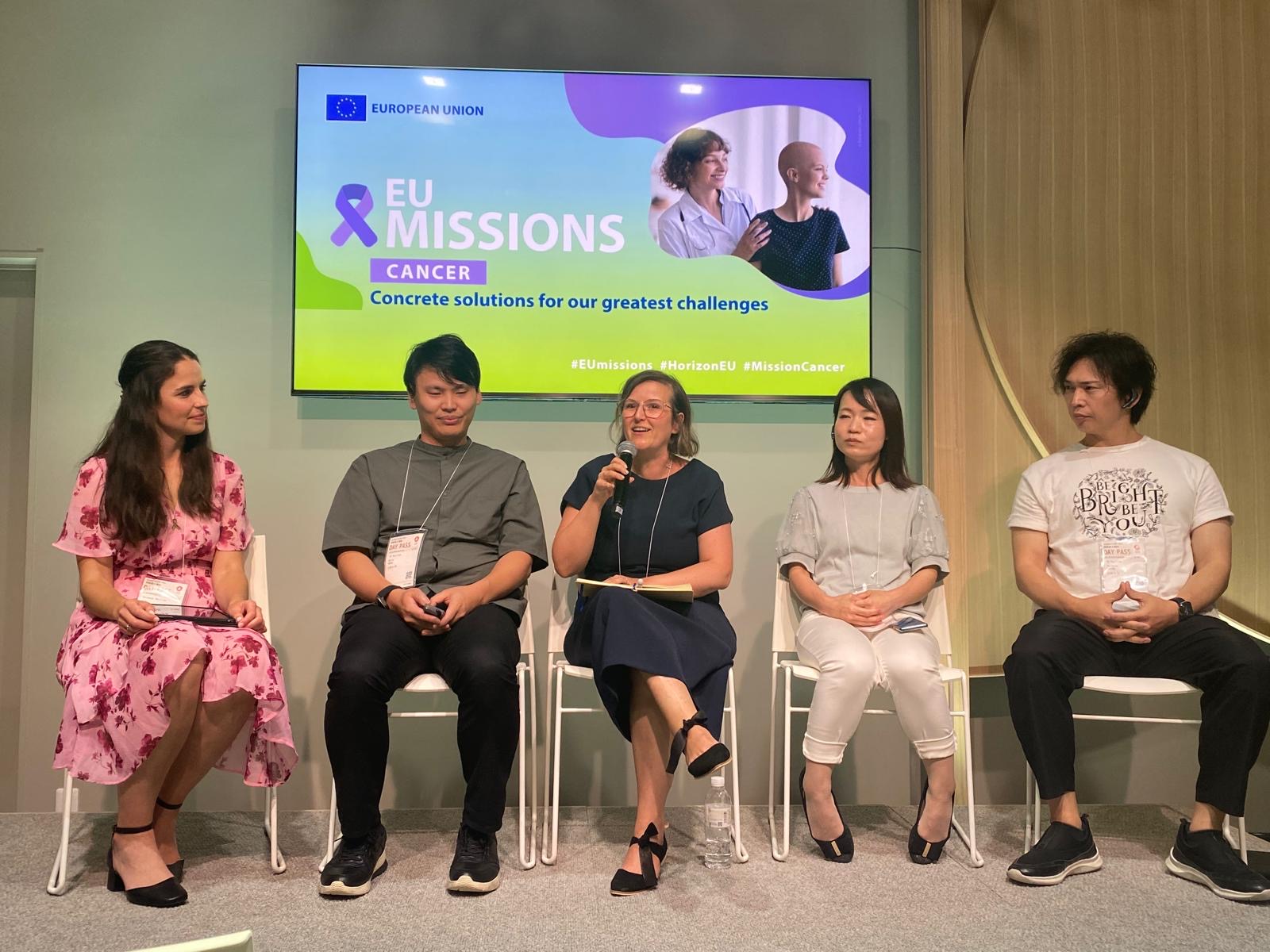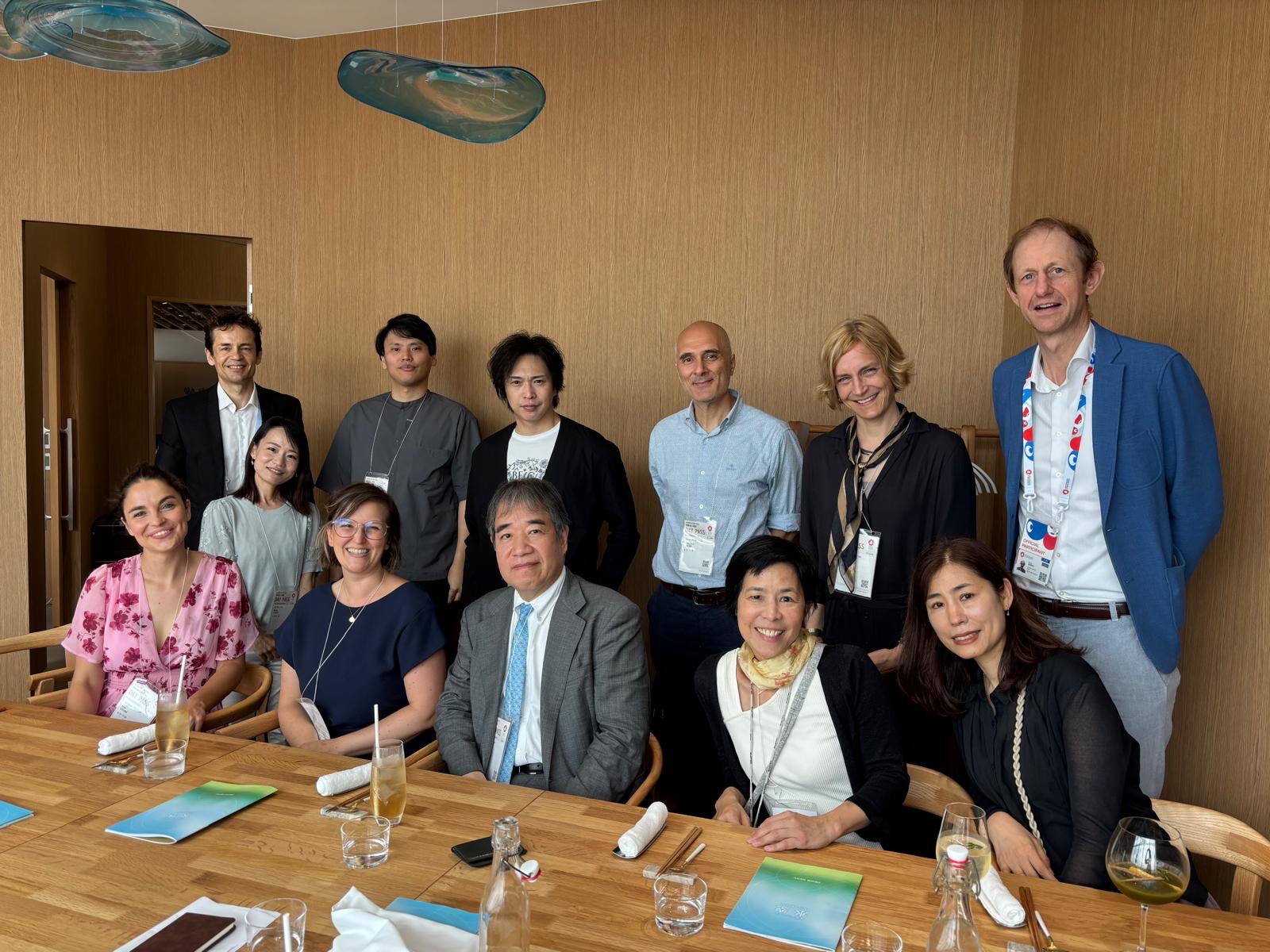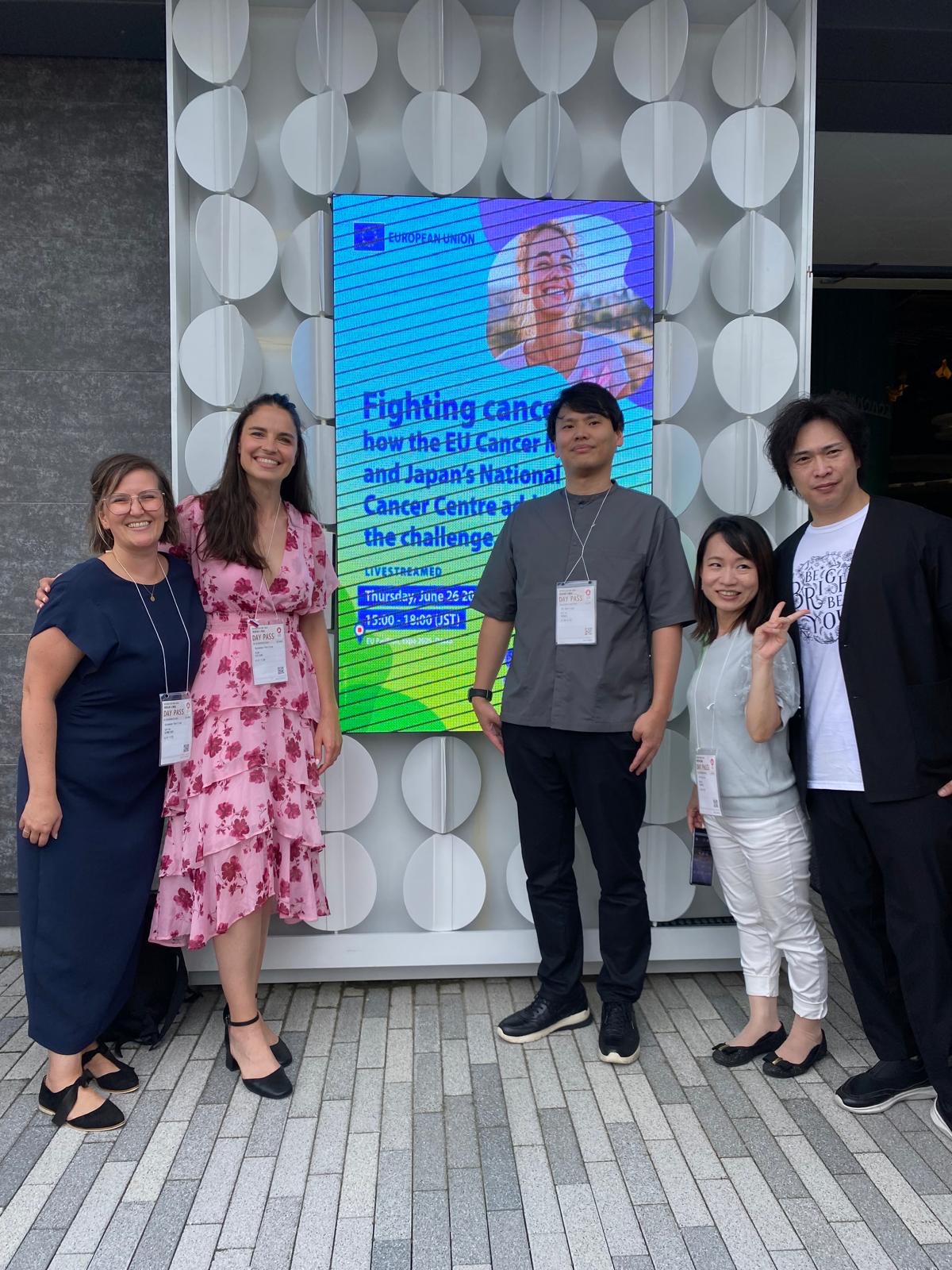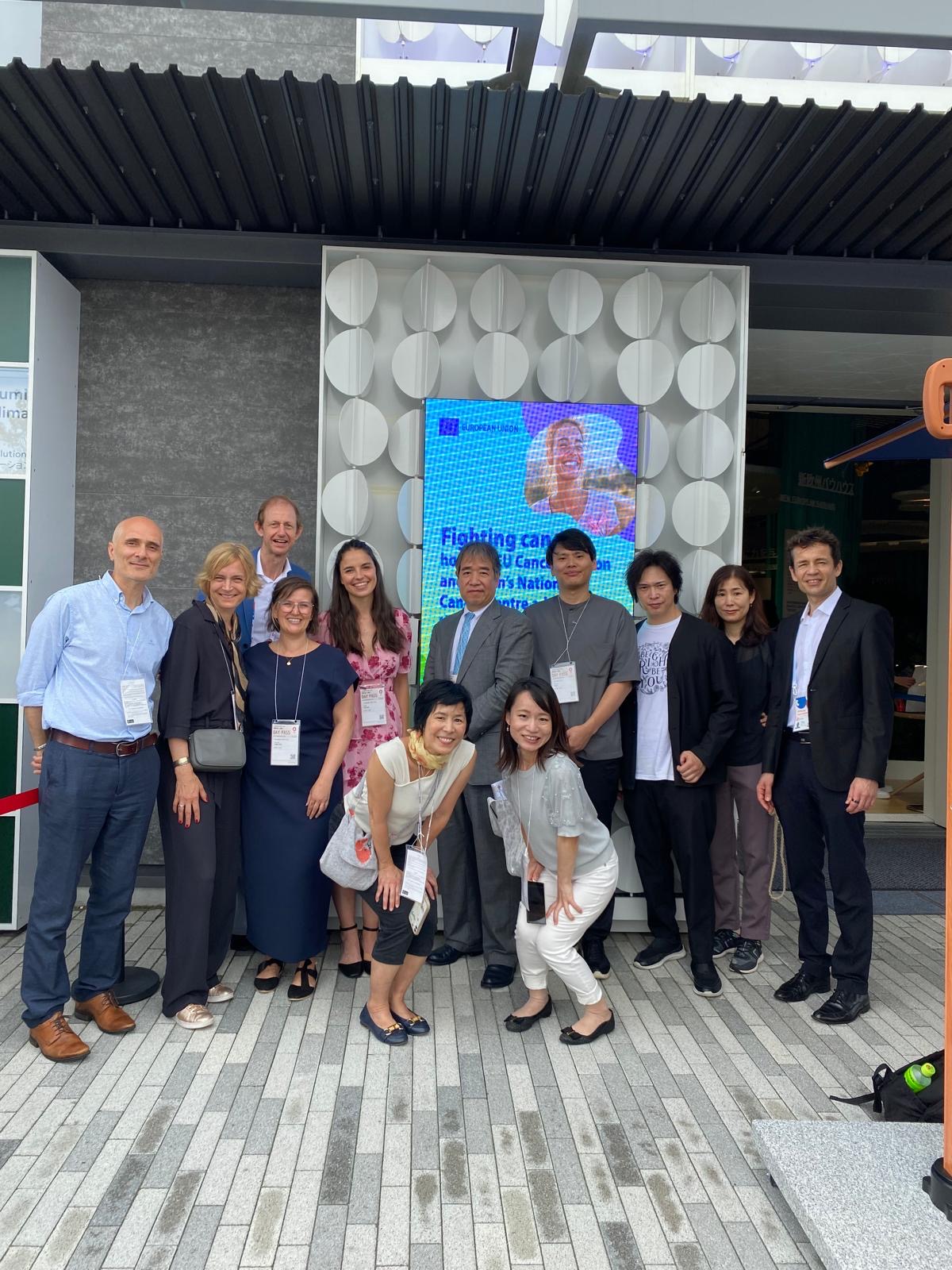Expo Osaka 2025:
Why Patient Advocacy Matters
On 26 June 2025, the EU Pavilion at Expo 2025 Osaka hosted the session “Fighting Cancer: How the EU Cancer Mission and Japan’s National Cancer Centre Address the Challenge.” Leaders from Europe and Japan came together to explore how international collaboration, shared commitment, innovation and patient engagement can transform the global response to cancer.
Among the perspectives shared, a key contribution came from CCI Europe’s Managing Director, Carina Schneider, who stressed the crucial role of patient advocates in shaping research and policy. She highlighted that meaningful progress in cancer care happens when survivors and patients are directly involved, ensuring that innovation reflects real-life needs. Particular attention was given to the unique challenges faced by adolescents and young adults, underscoring the importance of developing care strategies that extend beyond treatment to address long-term survivorship and quality of life.
Carina reminded attendees that “The Cancer Mission and Europe’s Beating Cancer Plan gave us unprecedented opportunities to change how we tackle the challenges that childhood, adolescent and young adult cancer patients, survivors and their caregivers face. We urgently need collaborative action to broadly implement what has been developed in the past 5 years, and to further accelerate the development of what is in the making now. Patient advocates and patient organisations can play a critical role in this process.”
The session in Osaka demonstrated how combining the strengths of the EU’s Cancer Mission with Japan’s expertise can create more inclusive approaches to research and treatment. It also made clear that embedding the perspectives of patients and survivors is not just an add-on, but a necessity if we want to achieve truly patient-centered outcomes. With the EU Mission on Cancer aiming to improve the lives of over three million people by 2030, organisations like CCI Europe play a vital role in ensuring these ambitions remain grounded in the lived experiences of those directly affected.
Read the full article from the European Commission here.


